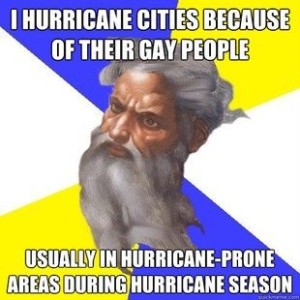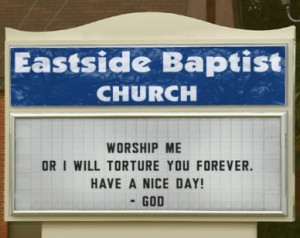 In response to a great question from Chuck McKnight on my post Why God Never Punishes Sin, I decided I had better write a short post about the Greek words kolazo and kolasis, specifically in reference to some of the New Testament uses of the word “punishment.” This post is not exactly a word study of those words, but a general theological clarification for how to deal with some of these tough texts in the Bible that deal with the topic of punishment.
In response to a great question from Chuck McKnight on my post Why God Never Punishes Sin, I decided I had better write a short post about the Greek words kolazo and kolasis, specifically in reference to some of the New Testament uses of the word “punishment.” This post is not exactly a word study of those words, but a general theological clarification for how to deal with some of these tough texts in the Bible that deal with the topic of punishment.
In my previous post, Why God Never Punishes Sin, and then in a follow-up post, More Reasons Why God Never Punishes Sin, I stated my belief that God never punishes sin.
Instead of punishing sin, I suggested that God disciplines and judges instead. Most of the words in the Old and New Testaments which are frequently translated as “punish” can be translated as “discipline” or “judge” instead. Maybe it is splitting hairs, but for me, the concept of punishment seems to imply the inflicting of pain upon someone else for something bad they did to you. I just don’t see that Jesus reveals this kind of God, a God that is vindictive toward His enemies, who inflicts pain and punishment on people because they go against His will.
Although … I suppose their can be painful consequences of discipline. I have been disciplined a lot in life, and as I look back, many of those times were quite painful.

So maybe I should be even more precise…. When I think of “punishment” I am thinking of floods, earthquakes, famines, hurricanes, asteroids, pestilence, and other natural disasters. It is quite common in some Christian circles to say that when a city is flattened by a hurricane, or when an earthquake strikes, or when a tsunami kills thousands, that this is “divine punishment” upon that area and those people.
I couldn’t disagree more.
The same goes for when a house burns down, a child dies, a person gets a terminal disease, or any other such disaster that can happen in life. None of these should ever be understood as God’s punishment. He doesn’t do these things.
These sorts of things happen in the kind of world God has created, especially in the one that has been skewed so terribly by sin. So in a way, these bad things that happen are a result of sin, but not because God is reaching down with his finger and squashing people like bugs because they took His name in vain, or broke one of His other commandments. This is not the kind of God we serve, or the kind of God revealed to us in Jesus Christ.
So my basic argument is this:
- God is good.
- Sin is bad.
- Sin has bad consequences, both upon those who do the sins, and upon those who do not.
- These consequences are not from a good God, but are the natural consequences of sin.
One of the things accomplished by our good God in Jesus Christ, was the implementation of a plan to do away with all sin, and the consequences of sin. God doesn’t punish sin. Instead, He takes steps to do away with sin, and to remove it’s consequences. How did He do this? Primarily by taking the consequences of sin upon Himself.
Many people say that since God created a world in which sin was possible, God Himself is responsible for the sin that is committed. In a way, God agrees, which is partly why He took the sin of the world upon Himself in Jesus Christ. But I am getting way off subject here, and into dangerous waters, so let me back up to the real point of this post.
I said in the previous posts that God does not punish. So what then do I do with passages like Matthew 25:46?
And these will go away into everlasting punishment, but the righteous into eternal life.
Or what do I do with 2 Peter 2:9?
The Lord knows how to deliver the godly out of temptations and to reserve the unjust under punishment for the day of judgment.
Understand that much of this is still theoretical, but I think of these sorts of passages this way:
 First, note that both texts seem to refer to something that happens to people after they die. I don’t know what sorts of “punishment” God might have in store for people after death, but again, using Jesus as the guiding principle, I highly doubt that God is going to torture people for all eternity by burning them in fire. I do not believe in annihilationism, nor do I believe in universalism, but I also do not believe in eternal conscious torment.
First, note that both texts seem to refer to something that happens to people after they die. I don’t know what sorts of “punishment” God might have in store for people after death, but again, using Jesus as the guiding principle, I highly doubt that God is going to torture people for all eternity by burning them in fire. I do not believe in annihilationism, nor do I believe in universalism, but I also do not believe in eternal conscious torment.
The punishment that happens to unbelievers after they die will involve eternal separation from God, and this in itself is punishment enough. No person on this earth has ever fully experienced full separation from God since He is always fully present everywhere. But those who want nothing to do with God will be granted their desire. Punishment is not something God inflicts upon people, but is a natural consequence of choosing to serve sin and self rather than God.
That is the way I understand these sorts of texts.
God has given humans genuine freedom, so much so that if they choose to reject Him, He honors their choice, including the painful consequences (for them AND for Him) that their choice entails. Punishment is not something God inflicts upon others when He is slighted. No, it is something that happens as a result of choosing our own way rather than God’s. And in a sense, as we see in Jesus on the cross, God Himself gets punished as a result of our poor choices as well. In a sense, when humans get punished for their own sin, God gets punished as well.
One other verse bears mentioning here. It is one of the key verses in my “theology” and I mentioned it a few weeks ago in a post about assurance. Interestingly, this verse also mentions punishment. The verse is 1 John 4:18:
There is no fear in love; but perfect love casts out fear, because fear involves punishment, and the one who fears is not perfected in love. (NAS)
The Greek is a little ambiguous in the phrase “fear involves punishment” which is why you will see some different translations in our various English Bibles. It literally says, “fear has punishment” which doesn’t make much sense, and so translators try to clarify the meaning. Aside from the NAS above, some say “fear has to do with punishment” (ESV, NIV, NRSV, NET), or “fear involves torment” (NKJV), and a few others. However it is translated, the basic idea is this:
Fear contains the punishment itself. This means that the man who lives in fear (before God) is already punished by this fear. His fear is his punishment. This thoughts may be linked with the express statement in John 3:18 that the unbeliever is judged already. The opposite of fear is love. Perfect love is free from every fear, because perfect love for God drives out fear before Him (TDNT, III:817).
This once again shows that any punishment that results from sin is the natural consequence of sin itself, and is not divine punishment at all. When we know how much God loves us, this not only frees us from fear of punishment, but it also frees us from the desire to sin, because we know that God only wants what is best for us, and His instructions are not to destroy our joy or ruin our lives, but to increase our enjoyment of life, and help us live better, longer, healthier, happier lives. This doesn’t always happen, because we live in a twisted world (cf. the book of Job), but when we experience pain and suffering, it is never because God is punishing us for some real (or imagined) sin against Him.
God doesn’t punish. He restores. He loves. He heals.
And of course, as we see in Jesus Christ, He suffers right along with us, bearing the Lion’s share of the pain in this world.
Hopefully, this email has helped you see that God is not angry with you about your sin, nor is He looking for ways to keep from forgiving you. No, God loves you and forgives you. He is looking for ways to work with you in helping you gain freedom from the power of sin in your life and deliverance from the destructive consequences of sin. If you have areas of sin you are struggling with, know that God wants to work with you in these areas; He is not out to punish you for them.




I couldn’t agree more. I love how you evangelize. This website made my faith so much stronger. Before I always thought god wasnt fair but i thank you for showing people the true god. Keep it up!
Kolazo (kol-ad’-zo): Properly, to curtail. – Stong’s notes. By this definition, 2 Peter 2:9 seems to indicate an end to existence rather than an eternal torment. In support of this, Revelations makes reference to smething called the Second Death. I have often wondered if some uses of the word ‘eternal’ could actualy mean unchangable or unalterable.
Good insight and good question! Eternal can refer to unchangeable and unalterable, or even a quality of life over quantity, but I think such usage is rare. I would probably need to look at 2 Peter 2:9 more closely…
I’m asking different people the same question and it’s amazing how the answer differs. Why did Jesus come to earth? What would you say? In 2-3 sentences
To show us God. All else is an inadequate representation.
1. To reveal God to us.
2. To reveal man to us.
3. To defeat sin, death, and the devil.
Excellent answer. Thanks Jeremy
1. You say, “Understand that much of this is still theoretical…” So, do you mean much of what you say here you are not yet convinced it is correct or true?
2. You say you doubt that hell is eternal fire and that you “do not believe” in annihilation, universalism, or even eternal conscious torment. What other option is there?
3. You say, “Punishment is not something God inflicts upon people, but is a natural consequence of choosing to serve sin and self rather than God.” Are you suggesting that natural disasters are the result of sin that humans have brought upon themselves and nothing more; that there is no involvement of God at all?
4. You say, “for me, the concept of punishment seems to imply the inflicting of pain upon someone else for something bad they did.” And, in another place you say, “The punishment that happens to unbelievers after they die will involve eternal separation from God…” But wouldn’t the fact that, even without a literal fire, the mere eternal separation from God – something which the Bible seems to clearly show that God Himself does: He separates men from Him – is in itself painful?
5. You say, “God has given humans genuine freedom, so much so that if they choose to reject Him, He honors their choice, including the painful consequences (for them AND for Him) that their choice entails. Punishment is not something God inflicts upon others when He is slighted. No, it is something that happens as a result of choosing our own way rather than God’s.” But, (a) is not eternal separation from God a punishment he inflicts? and (b) Who ultimately ordered the way the universe works?
One thing I think you fail to realize is that no one would willingly inflict punishment on themselves; therefore, no one would willingly walk into hell (however it is conceived but without denying it will be eternal and painful) singing a happy tune. They may know they deserve it for rejecting God, but they aren’t going to voluntarily walk in it. I think it is fair to suggest that, as the Bible seems to imply (metaphorically or otherwise) God will send sinners to there deserved end; it is God who will cast them out of the Kingdom and into the place of darkness, terror, and dread.
While I can agree that perhaps every tragedy experienced here doe not necessarily entail God’s immediate involvement, nevertheless, being the ultimate creator and ruler of all Creation and the natural laws therein, God is the ultimate cause of all suffering, innocent or otherwise. On the other hand, however, as the ultimate cause, it does not convey any guilt on God’s part for either our sin or tragedy; God is free from every and all blame as a perfectly loving and just Ruler.
Although a Father has a son who grows up to be a serial murderer, that in no way means that, although he brought the son into existence, the father is in any way to fault for the son’s heinous crimes (of course, not all analogies are perfect, but I hope you get the gist of my meaning).
I’m with you that natural disasters and tragedies are not, at least, necessarily by God’s direct intervention into the affairs of men. But neither can we totally free God, while loving and just, in a way that wholly removes Him as a Judge from either the temporal sufferings or the ultimate sufferings of men. He is Savior and Judge; it is not either/or but “and”. I think the Bible makes this clear.
Btw, The TDNT, in referencing the Last Judgment, also reads, “There is no salvation from eternal punishment if we are disobedient to the commands of Christ… *God plunges* gainsayers into punishment and torment (p.816).
But, perhaps I have misunderstood this article.
See: https://atdcross.blogspot.com/2017/07/devotion-20-hell-all-god-needs-to-do-is.html
Well God certainly punished me with singleness as a single man that was really hoping to meet the right good woman to share my life with, which is much better than being single and alone all the time. Even God said that man shouldn’t be alone. So much for that. But then again with the kind of very horrible women that God created these days really doesn’t help at all either. Most women today will even Curse at many of us single men for no reason at all when we will just say good morning or hello to them, and that doesn’t even make any sense at all for women to act that way with us now since many of us are really looking for a very serious relationship today. And i know other single friends that had the very same thing happened to them as well unfortunately. I can really see that most women really do have a very severe mental problem, especially when there are many of us good single men that really do know how to treat women with a lot of love, respect, and commitment. God certainly created much better women back in the old days when they had a lot of respect for men, that they really don’t have today at all. Their parents did a very great job raising their children back then, and taught them a lot of respect when it came to men as well. That is why women back in those days were certainly so much better than today which most of them really were at that time, and that made finding love in those days so much easier than today just like our family members had it. What in the world did God do to these very pathetic women today? It is very obvious why so many of us men are still single today, because of the very big change in the women now unfortunately.
Why do most Christians believe that, once they confess Our Lord Jesus Christ to be their Saviour, they become Gods’ darling from everlasting?
This is nonsense and smells of lies from a money hungry Mega Church preacher like the ones we know.
Of course God punishes! When a population shares the same vices, the same malice, the same attitude towards God , that is, rebellion against His loving Will, then why would the Almight NOT punish an entire nation or people?
And no, punishment is not an act of spite, but an acto of CORRECTION.
God ALLOWS bad things to happen so that PAIN can purify the soul and a higher consciousness (that is, to climb to higher levels of Wisdom and Knowledge) can be attained.
Our Lord Jesus, by His Cross and Resurrection, turned pain into a blessing, into a purifying force.
On the other hand, are we going to deny God’s permissive will? Are we going to deny that God allows evil to occur in order to avoid a greater evil?
If Evil didnt serve its purpose then God would have annuled it, simple as that.
This is why occultists say “The end justifies the means” since they steal the perrogative of Satan and commit acts of evil saying “God allows it, this means He wills it!”.
We need to “man up” and accept that God DOES punish in order to save us and He DOES punish collectively when a nation commits the same sins, hence a herd mentaility comes about, thus collective punishments are at hand.
Yes, punishments hurt, but they are there to purity the sinners who are weak yet WANT to change, and they are also there to punish the wicked, although these will be punished with Hell due to their unwillingness to change.
God punishes by crossing His arms and letting bad things happen, its called learning the hard way, which is the way most of us learn, sadly so.